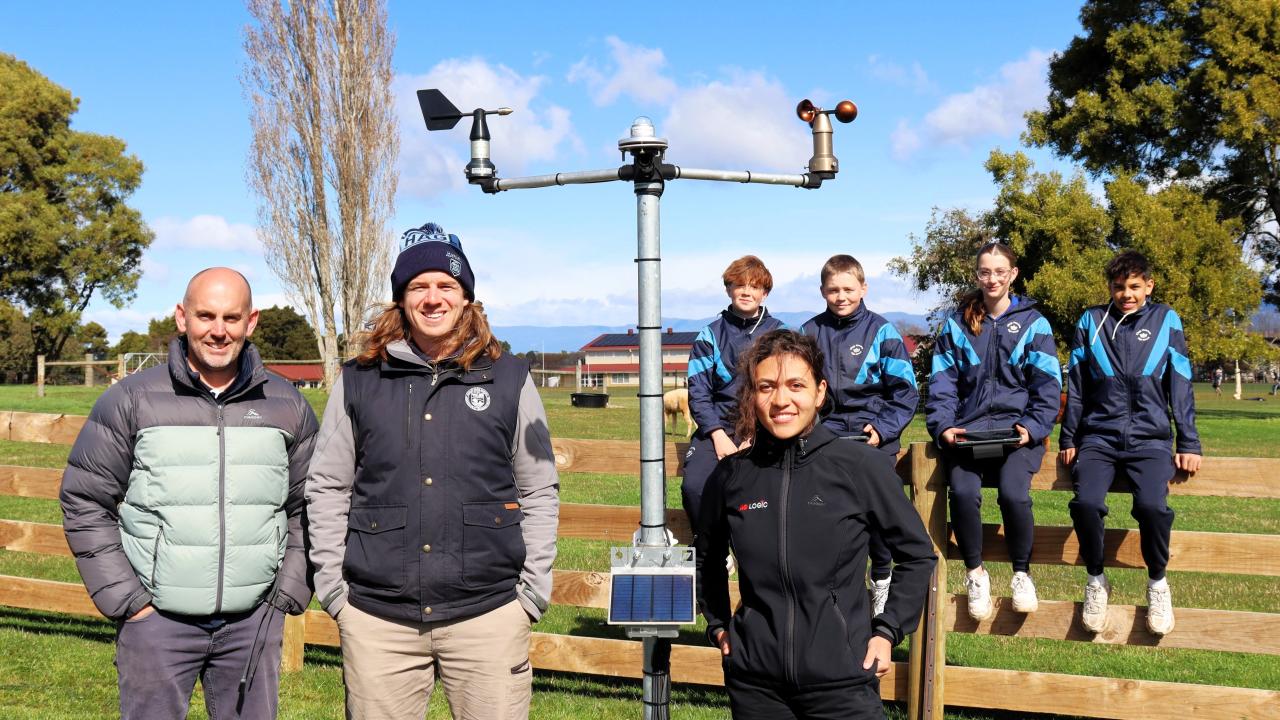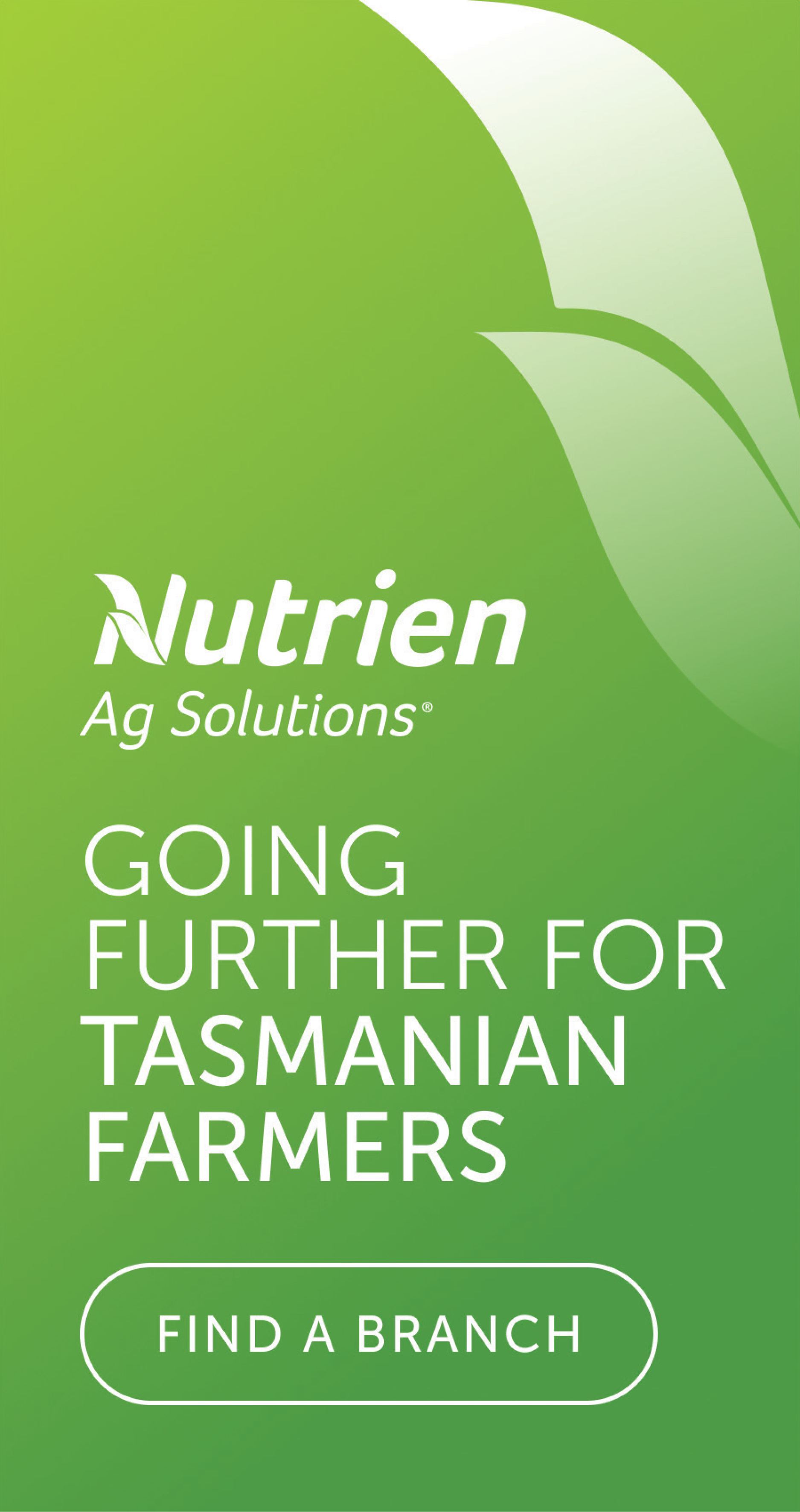City kids get a taste of hi-tech agricultural tools

Students at Kings Meadows High School had a taste of life on the land through an innovative project that connected them with the latest farming technology in a learning environment.
The Digital Ag Tech on School Farms project equips Tasmania’s future agricultural leaders with hands-on access to real-time weather and soil data, providing an immersive learning experience that bridges classroom theory with practical farm insights.
Delivered by Ag Logic in partnership with the Hagley Farm School Agricultural Learning Centre, the project is funded by the TAS Farm Innovation Hub through the Australian Government’s Future Drought Fund.
Initially, networked weather stations and soil moisture probes were installed at three government school farms: Jordan River Learning Federation Senior School Farm, Sheffield School Farm and Hagley Farm School Agricultural Learning Centre.
This year, the project will also include Oatlands District High School, Exeter High School, Sacred Heart Catholic School and Yolla District School.
Marek Matuszek from Ag Logic said the advanced tools deliver real-time local data directly into the classroom, enabling students to understand how weather and soil conditions influence crucial farming decisions such as planting, irrigation, harvesting, and crop protection during extreme weather events.
“Students will be able to access vital information such as temperature, humidity, wind speed and direction, and rainfall - all critical elements that affect daily farm activities,” he said.
“They’ll also receive alerts for frost and heatwaves, along with data on evapotranspiration, which estimates crop water usage. This hands-on learning brings the realities of the farm straight to the students’ fingertips.”
According to Andrew Harris, Statewide Coordinator of the Revitalising School Farms initiative, the project is a powerful example of how collaboration with industry can transform education.
“It’s about preparing students for the modern ag sector - giving them hands-on experience with the tools that are shaping the future of farming,” he said.
“Bringing this advanced ag tech to urban schools like Kings Meadows is a huge step forward. It shows that modern farming is relevant everywhere, and that students don’t need to live on a farm to engage with the future of agriculture.
Kings Meadows High student Bryce Austen said he was enjoying being at Hagley Farm, learning about the importance of weather and how it can be monitored for the farm’s benefit.
“And of course I was pretty keen to see all the farm animals and see how it’s used to help them too,” he said.
Hagley Farm Agricultural Learning Centre teacher Mike Tyson talked to the students about how farmers use the hardware and then look at the data to help them make more innovative and sustainable choices.
“The weather stations tells us what’s happening right here as opposed to the BOM’s weather station at Cressy where it can be quite different,” he said.
“We have probes 1.2m deep in the ground and at this time in the past two years it showed the soil had reached full water capacity but this year it shows us it’s still dry below, even after all the recent rain.
“Information like that can be used to decide how many crops to put in and how much irrigation might be needed.”
“We have a Tasmanian Institute of Agriculture multi-species drought resistant pasture trial going in and they were ready to spray ahead of planting the other day, but after looking at the wind readings here on that day it was held off to a better day.”
Ag Logic field officer Chelsea McDonald said she wanted to see the farm school students, which include many farmers of the future, get comfortable using the data and become equipped with the skills to farm more efficiently as resources become scarce.
“It gets really exciting when you add the model and equations, modelling disease and insect activity for instance, and then you can make decisions based on a good baseline of data and not just on a whim or gut feeling,” she said.
She said that the technology has already proven invaluable to potato growers, who can time their planting and harvest more specifically and she said that data from humidity, moisture and other sensors could become even more crucial to help manage the potato mop top virus and other diseases.
Teachers interested in training on using the weather station and soil moisture probe data can contact Andrew Harris at the Hagley Farm School Agricultural Learning Centre on (03) 6392 2272. Professional learning sessions will be available later this year.




Add new comment